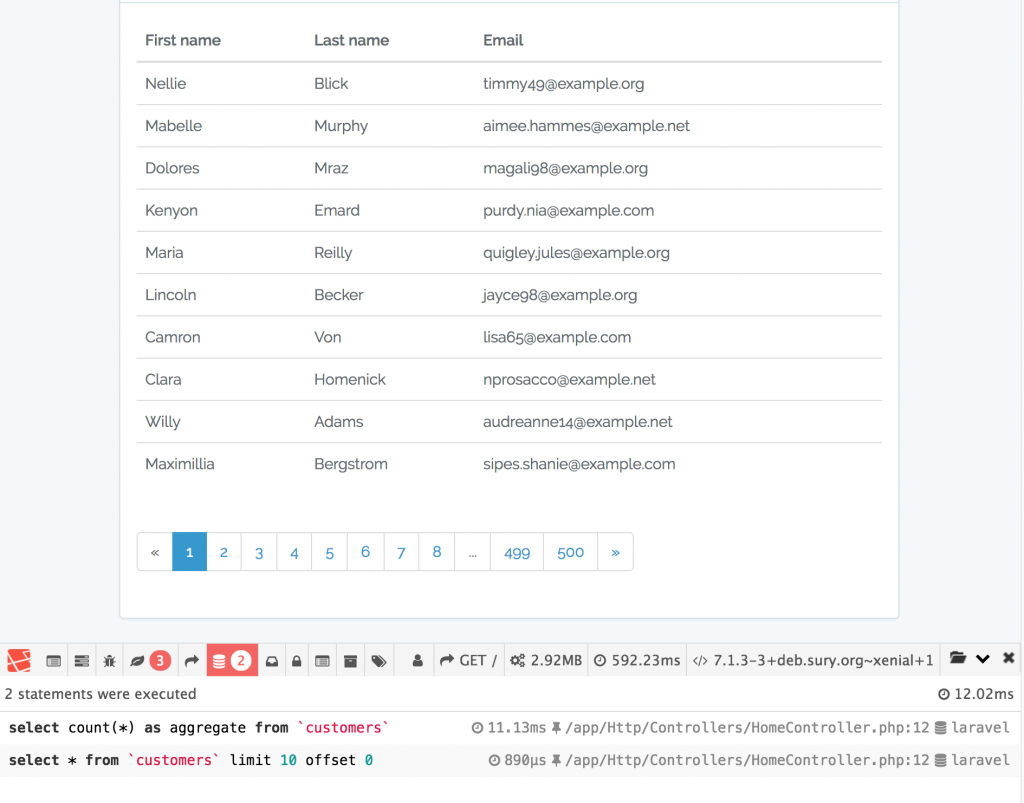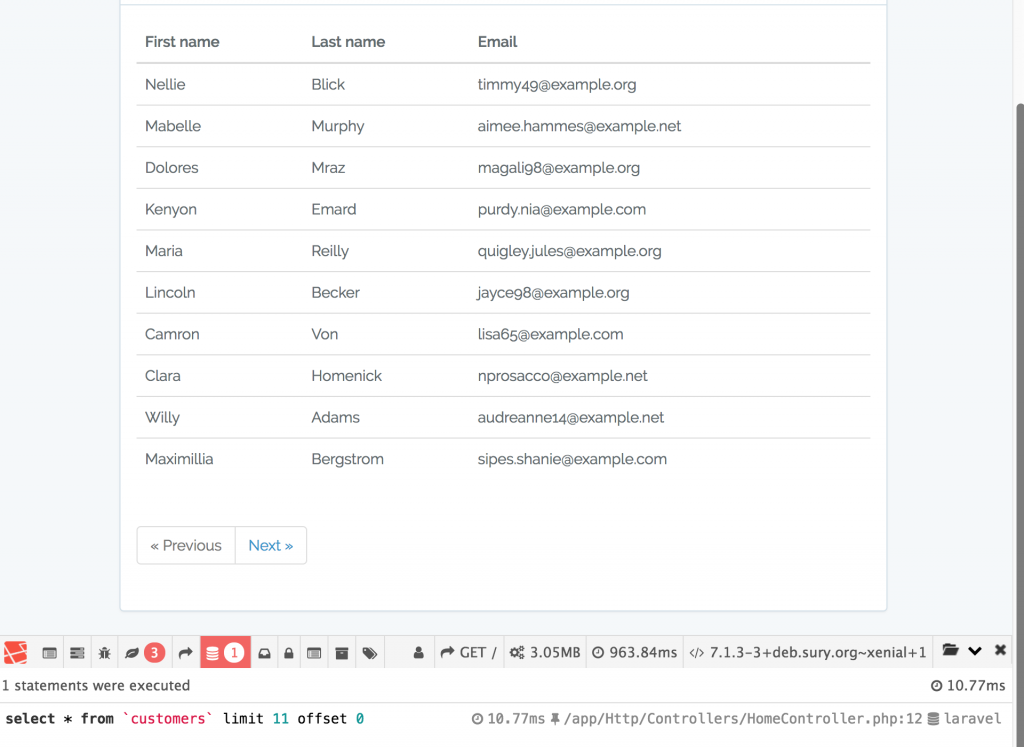Laravel pagination is quite a simple thing to use, but to determine the amount of pages it makes additional query to the database, which may be a problem for bigger amount of data. And you can actually avoid it.
Let's take a simple pagination example from a table with 5000 customers:
$customers = Customer::paginate(10);
And then in Blade file you have this:
| First name |
Last name |
Email |
@foreach ($customers as $customer)
| {{ $customer->first_name }} |
{{ $customer->last_name }} |
{{ $customer->email }} |
@endforeach
{{ $customers->links() }}
Here's how the queries look in Laravel Debugbar.
 As you can see, there's query for the actual page, and then counting the amount of entries/pages.
What if you don't need the numbers of pages and you just want to show links for Previous and Next? There's a function for that called simplePaginate().
As you can see, there's query for the actual page, and then counting the amount of entries/pages.
What if you don't need the numbers of pages and you just want to show links for Previous and Next? There's a function for that called simplePaginate().
$customers = Customer::simplePaginate(10);
 Now, look at the amount of queries.
Hope that helps!
Now, look at the amount of queries.
Hope that helps!
 As you can see, there's query for the actual page, and then counting the amount of entries/pages.
What if you don't need the numbers of pages and you just want to show links for Previous and Next? There's a function for that called simplePaginate().
As you can see, there's query for the actual page, and then counting the amount of entries/pages.
What if you don't need the numbers of pages and you just want to show links for Previous and Next? There's a function for that called simplePaginate().
 Now, look at the amount of queries.
Hope that helps!
Now, look at the amount of queries.
Hope that helps!
